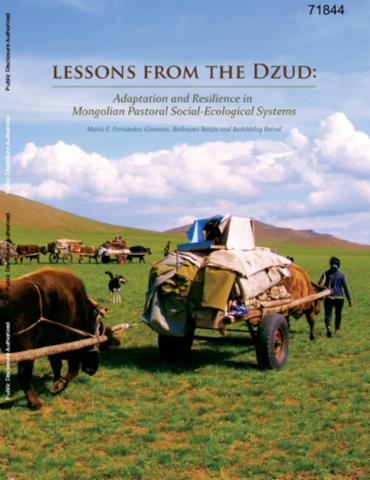Resource information
Dzud is the Mongolian term for a winter weather disaster in which deep snow, severe cold, or other conditions render forage unavailable or inaccessible and lead to high livestock mortality. Dzud is a regular occurrence in Mongolia, and plays an important role in regulating livestock populations. However, dzud, especially when combined with other environmental or socio-economic stresses and changes, can have a significant impact on household well-being as well as local and national economies. This study aims to fill this gap in knowledge by conducting in-depth case studies of four communities responses to the 2009-2010 dzud to document both household-and community-level impacts and responses. The case studies use a mixed-methods approach employing qualitative and quantitative data collection and analysis techniques including interviews, focus groups, household questionnaires, photovoice and document review, and were carried out in two soums (districts) located in the forest-steppe zone of Arkhangai Aimag (province), Ikhtamir and Undur Ulaan, and two soums in the Gobi desert-steppe zone of Bayankhongor Aimag, Jinst and Bayantsagaan. The specific objectives of this study are to assess herder household and community vulnerability, adaptive capacity, and medium-term recovery and resilience from the dzud of 2010.


